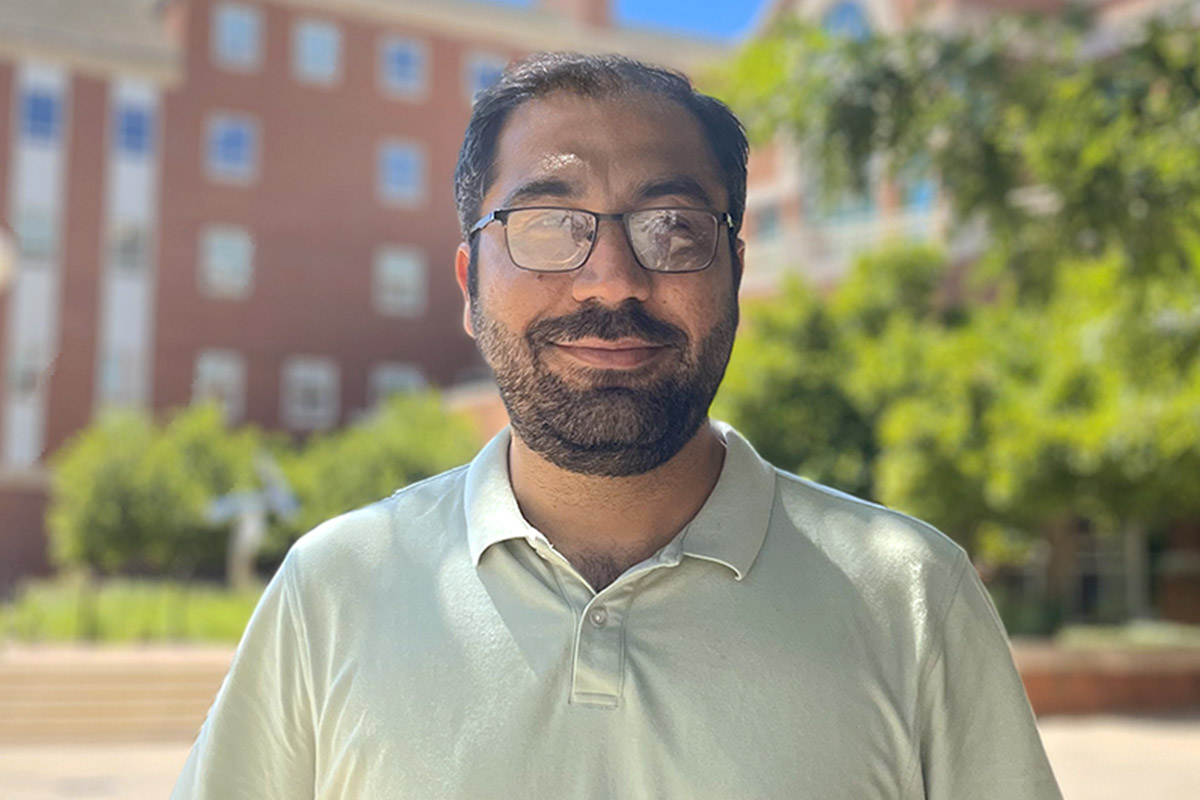Student Feature Friday with Shahzad Yousaf
Wednesday, August 30, 2023
Meet Shahzad Yousaf! A 2nd year PhD. student set to graduate in the fall of 2025. He enjoys playing hockey, watching cricket, and occasionally cooking. Among his favorite dishes to cook is biryani, a South Asian dish of mixed rice, vegetables, and (typically) meat, seasoned with a blend of spices.
Prior to joining CIBS, Shahzad was lecturing in Pakistan, teaching refrigeration and air conditioning. He joined the center, looking to expand his knowledge where it was limited. He believes CIBS is vital in acting as a bridge between industry and research, resolving some disconnect that can happen between these entities.
His recent publications cover topics such as combining machine learning with traditional modeling methods to enhance the ability to choose suitable empirical models (Yousaf et al. (2022)). Another paper looks at use of machine learning to study the important model inputs that affect the cooling capacity of air conditioning units, with the finding of improving predictions of cooling capacity and efficiency in air conditioning systems. (Yousaf et al. (2023)) His most recent paper evaluates different models used in building energy models for air conditioners and heat pumps and proposes a new model that captures contemporary equipment behavior effectively while minimizing the need for extensive testing data.
His current works include a grey box model for optimizing the design of heat pump systems. This is when, for example, in a heat pump system you can see how the components are responding to temperature and air flow input to achieve an output. Having developed his set-up, he is now in the process of testing it to get some testing data and build a mathematical model. Right now his work is based in a perfect world scenario, but he is looking forward to his future challenges, which will be building a transient model that will be able to accommodate disturbances and increases on a systems load. He hopes that his work at CIBS will benefit not just building energy models, but manufacturing processes as well. Accurate models = less energy consumed, and less waste, which would provide for a sustainable future. Shahzad is working on residential scale systems (4-ton), but he aspires to work on much larger scaled systems (200-250—ton) in industry research in product development.
References:
Yousaf, S.; Bradshaw, C.R.; Kamalapurkar, R.; and San, O., (2022). "Physics Informed Machine Learning Based Reduced Order Model of Unitary Equipment" (2022). International Refrigeration and Air Conditioning Conference Paper 2417. https://docs.lib.purdue.edu/iracc/2417
Yousaf, S.; Bradshaw, C.R.; Kamalapurkar, R.; San, O. (2023). “Investigating critical model input features for unitary air conditioning equipment” Energy and Buildings, Volume 284 https://doi.org/10.1016/j.enbuild.2023.112823
Under review:
Yousaf, S., Bradshaw, C.R., Kamalapurkar, R., San, O., (2023). “Development and Performance Evaluation of Black Box Models for Air Conditioners and Heat Pumps”

